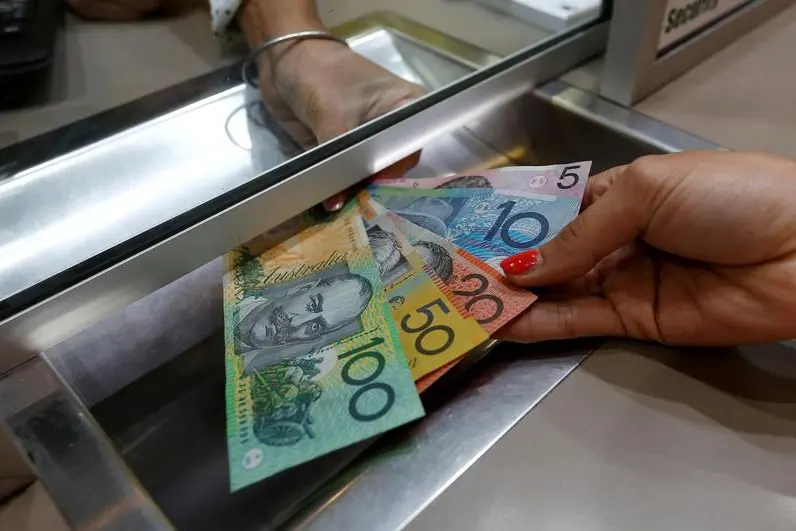PHOTO
The Australian dollar gained on Friday, testing chart resistance, as investors spooked by a hot local inflation print bet on the possibility of another rate hike and the Bank of Japan kept rates steady, weighing on the yen.
The Aussie briefly hit $0.6532, topping its 200-day moving average of $0.6527, before last settling around $0.6520. It is set for a weekly gain of 1.6% thanks to a rally in risk appetite and wagers that local interest rates will stay higher for longer.
The kiwi dollar climbed 0.2% to $0.5947, having eked out a 0.1% gain overnight. It is headed for a weekly gain of 1%.
Both had been boosted by yen selling on Friday after the BOJ held interest rates steady as widely expected, and said accommodative monetary conditions are likely to continue for the time being. The Aussie climbed to a fresh nine-year high of 101.83 yen.
Traders are still digesting the impact of a shockingly hot first-quarter inflation report on Wednesday that had decimated any lingering hopes of a rate cut from the Reserve Bank of Australia this year.
The swap market is now wagering the central bank could hike rates, with an implied probability of 50% for a quarter-point increase by year-end. To make matters worse, hot inflation readings from the U.S. overnight added to signs that the last mile of getting inflation back to target is proving to be bumpy.
Most economists still see the next move in interest rates is down, although some have pushed back their call for the start date of the easing cycle to late this year or early next.
"It seems clear to me that inflation is still trending lower, but it's just a bit bumpy and it's just going to take a bit longer to get inflation back to the RBA's target band," said Andrew Ticehurst, a senior economist at Nomura.
The bond market returned from a public holiday with another round of heavy selling. The rate sensitive three-year government bond yield jumped another 13 basis points to 4.163%, the highest since November last year. It surged 32 bps this week.
Data also showed on Friday that the government's budget position continued to improve in March, with the underlying cash balance at a A$1.8 billion deficit, making the second budget surplus within reach in three months time.
In New Zealand, the rate market also moved to wager on just one rate cut from its reserve bank this year.
(Reporting by Stella Qiu; editing by Miral Fahmy)





















